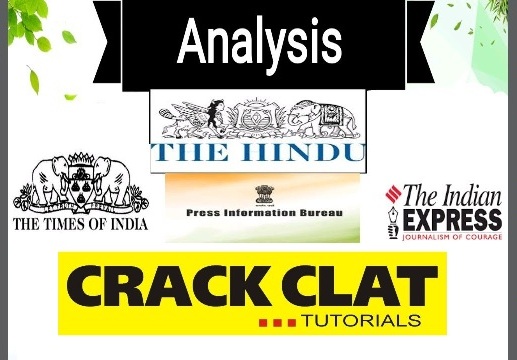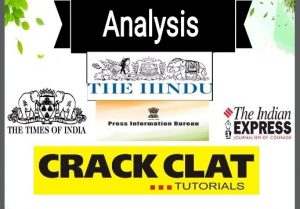Analysis of Important Editorial, Articles & Opinion for CLAT – Against excess: On Maratha quota
Against excess: On Maratha quota
In Maratha case, SC holds fast to quota ceiling and requires special reasons to exceed it.
Context:
- A five-judge Constitution Bench of the Supreme Court unanimously declared a Maharashtra law, which provides reservation benefits to the Maratha community taking the quota limit in the State in excess of 50%, unconstitutional.
- The court said there was no “exceptional circumstance” or “extraordinary situation” in the state which needed to break the 50 percent ceiling established by the honorable court in Indra Sawhney case of 1992.
Issue at hand
- The Supreme Court has underscored the importance of adhering to the 50% limit on total reservation, as well as the need to justify any excess by showing the existence of exceptional circumstances.
- Court found the Maharashtrian govt’s claim without merit and at the same time said the community is “adequately represented”inn public services.
- The “Maratha quota”, given by Maharashtra through a 2018 law, did not survive judicial scrutiny by a Constitution Bench.
- The 16% quota in admissions to educational institutions and jobs in public services — later brought down to 12% in admissions and 13% in jobs through a 2019 amendment — took the total reservation in the State beyond the 50% ceiling imposed by earlier verdicts.
- The court found no exceptional situation in the state to justify the breach of the ceiling of 50 percent.
- SC also set aside the ruling of state HC which gave the reason that denial of reservation was pushing the Maratha community deeper into social and educational backwardness.
Potential challenges
- Supreme Court’s refusal to reconsider the 50% limit set down by a verdict in Indra Sawhney Case (1992) may threaten the continuance of different kinds of reservation in States.
- Interpretation of the 102nd Constitution Amendment, by which a National Commission for Backward Classes was created, has proved right fears that the national body’s role and power may impact the rights of States.
Conclusion
- The Court has ruled that, there will only be a single list of socially and educationally backward classes with respect to each Stateand Union Territory notified by the President of India, and that States can only make recommendations for inclusion or exclusion, with any subsequent change to be made only by Parliament.
- The Court has now ruled that Parliament’s intent was to create a scheme to identify SEBCs in the same manner as SCs and STs. The President alone, to the exclusion of all other authorities, is now empowered to identify SEBCs.

